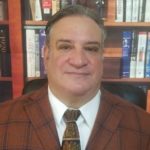Court Redefines 'Knowingly,' Suspends Giuliani's Law License
On Thursday, the eve of the 52nd anniversary of Rudy Giuliani’s admission to the New York bar, the Appellate Division of the state’s Supreme Court temporarily suspended him from practicing law, pending final determination by the Attorney Grievance Committee, for purportedly violating some of the Rules of Professional Conduct to which attorneys are bound to adhere.
Being a member of that same bar, I learned long ago that the first step in assessing violations is to examine the law or regulation in question — in this case, those RPC sections.
Rule 3.3(a) prohibits a lawyer from knowingly: 1) making a false statement to a court, and/or failing to 2) disclose legal authority and/or 3) evidence adverse to his/her client’s position.
Rule 4.1 applies that same “knowingly false” standard to third persons, and 8.4 states that a lawyer shall not engage in conduct (c) “involving dishonesty, fraud, deceit or misrepresentation,” and/or (h) that otherwise “adversely reflects on the lawyer’s fitness as a lawyer.”
Except for 8.4(h), the remaining three rules are all predicated on whether the accused knowingly initiated or perpetuated false information. Keep in mind, a person can relay falsehoods inadvertently, based on seemingly reliable information, or on a negligent or even reckless belief in their veracity. But these rules don’t go that far.
For example, some folks continue to sincerely believe (I’m not one of them) that Barack Obama was born in Kenya and therefore was never eligible to be president.
Suppose, however, that I did believe that and I continued to believe it even after Obama released his U.S. birth certificate because I simply didn’t trust him to tell the truth. Kamala Harris said last fall that she wouldn’t trust Donald Trump about vaccine safety, and she’s vice president, so why wouldn’t I or any other attorney be afforded that same leeway if I didn’t think Obama was being truthful about his birthplace?
If I made the Kenya claim on a client’s behalf, the only way I should be found in violation of Rules 3.3(a), 4.1 and/or 8.4 (c) would be if there were actual evidence that I knew the information was false (for example, if there was footage of me saying “I know Obama was really born in the United States, but I’m just trying to make him look bad”).
Keeping that in mind, let’s turn to the conduct at the core of Giuliani’s suspension: his vigorous and repeated claims of numerous improprieties in the 2020 presidential vote count that denied re-election to the rightful winner, Giuliani’s client Donald Trump.
The court didn’t cite evidence that Giuliani knowingly spread false information. At worst, the court’s conclusions point to poor judgment on Giuliani’s part, which might have constituted a violation if the rules included qualifiers like “knowingly or with reason to know” or “knowingly or with reasonable certainty.” But they don’t.
If the RPC authors wanted to prevent attorneys from postulating unsubstantiated theories, they would’ve tailored the rules more narrowly to achieve those means. They’re lawyers, after all; they know how to write laws.
If a client of mine claims the moon landing was fake and wants to sue NASA for perpetuating fraud, and I really believe my client’s theory, I may be called a fool, a simpleton and a poor excuse for a lawyer, but I can’t rightfully be accused of violating those rules.
Turning to the last one, 8.4(h), the court gratuitously threw it in last-minute, as a tack-on near the end of the opinion, regarding Giuliani’s comments that he relied on newspapers, records and witnesses — none of which he produced — referencing tens of thousands of votes by illegal aliens.
Although the court correctly pointed out that Giuliani was not reprimanded for making his claims as a private citizen but only as an attorney, the same slippery slope that threatens free speech overall can hamper an attorney’s ability to represent clients “zealously within the bounds of the law,” which is Canon 7 of the American Bar Association’s Code of Professional Responsibility.
Taken together, Canon 7 and the court’s reading of 8.4(h) effectively place attorneys on a tightrope, demanding zeal while suppressing it. (Remember, the court made no mention of Giuliani breaking any laws.)
Finally, his high-profile status notwithstanding, Giuliani does not deserve any more or less scrutiny than any other attorney facing similar circumstances.
It’s ironic, however, that in New York — the very city where Giuliani, as prosecutor and mayor, caused countless criminals to go to prison and led thousands to safety on 9/11 — he now potentially faces permanent prohibition from plying his trade by a court that tips its hand in proclaiming that the country’s being “torn apart” by continued attacks on the election and President Joe Biden. Even if it does say so itself.
The views expressed in this opinion article are those of their author and are not necessarily either shared or endorsed by the owners of this website. If you are interested in contributing an Op-Ed to The Western Journal, you can learn about our submission guidelines and process here.
Truth and Accuracy
We are committed to truth and accuracy in all of our journalism. Read our editorial standards.












